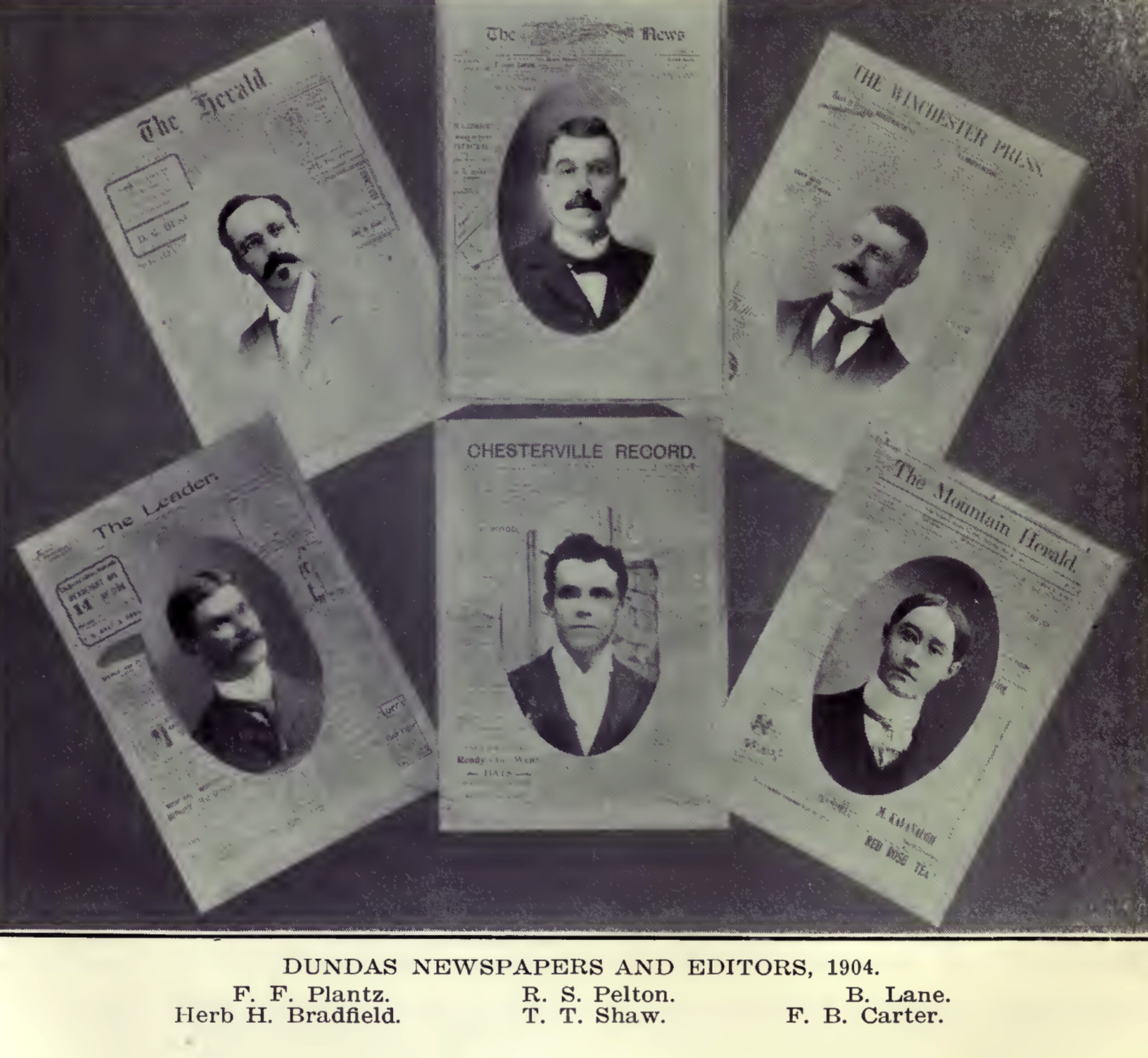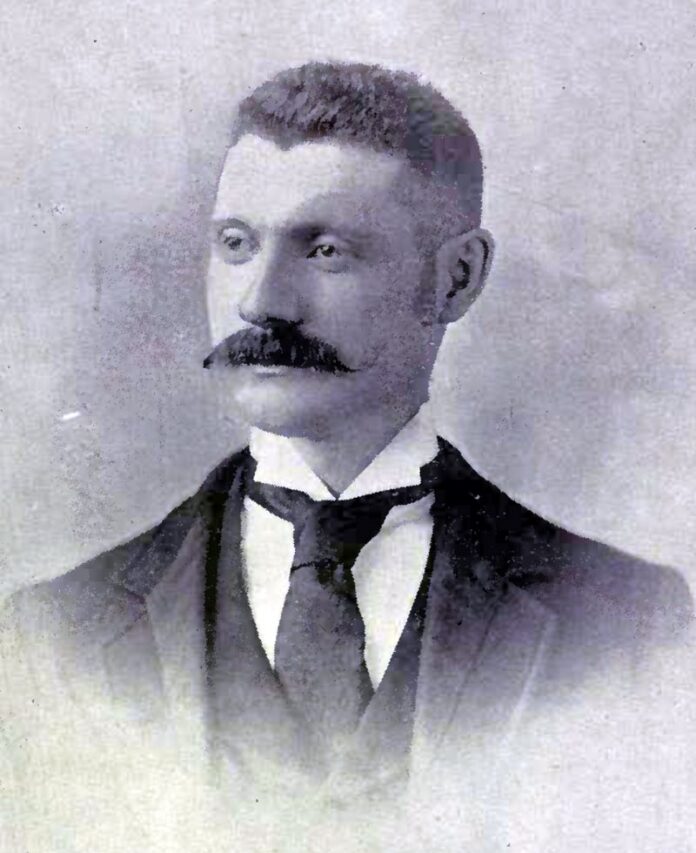Although the North Dundas Times is only a recent addition to the history of newspapers in Dundas County, it follows a long and sometimes colourful line of papers that have appeared in the region over the decades. As long ago as 1858, the Iroquois Chief was a weekly newspaper started by a young 20 year old, William Johnston. He had served his time with the Brockville Recorder, a newspaper that survives to this day. Unfortunately for Johnston, his paper lasted just two years, suffering from a lack of funds because of the failure of subscribers to actually pay their subscriptions. But William landed on his feet, eventually, joining the staff of the Toronto Globe (now the Globe and Mail).
Closer to home, the Winchester Press began publication on May 1, 1888, lasting for more then 130 years before closing so recently earlier this year. It was nice timing, as Winchester had become an incorporated Village in January, 1888. Its founder was Byron Lane, born in Leamington, and with experience of a number of publications in Canada and the United States before arriving in Winchester, where he bought the property of R. L. Crane, where the West Winchester Directory had been based, and established the newspaper.
It was unusual for its time, in that the entire operation of the paper was located in the Press office in Winchester from 1891. Usually, the printing was done elsewhere, by professional printing companies; but Byron Lane had the experience and talent to do the whole job on site.
In its long history, the Press had remarkably few owners. James H. Ross took over the paper in 1915 and continued as owner until his death in 1937, during which it went through trauma and growth. In 1921, the building housing the paper was destroyed by fire, but Ross kept publishing and built the Winchester Press up into one of the most respected journals of its day.
After his death, one of Ross’ employees eventually took over as owner/editor, and Fern Workman carried on the business until his death in 1957. But the Press continued in the family, published by his widow and sons until 1981, when it was sold to the Morris family, who continued in place until the paper folded last January. All in all, it is a remarkable record that the Winchester Press had just four owners in all of its 132 year history.
South Mountain had its own newspaper too. In 1899, J. B. Dixon, a native of Kemptville, arrived in the village and opened the Mountain Herald. It was later taken over by the Beach family and, apparently, “enjoys a fair patronage”. Not fair enough, as it happened, as the paper ceased publication.
The one publication that did survive to the present day is The Chesterville Record, which began publication in December, 1894 by R. L. Harrop, who only remained with it for a year. It was then taken over by T. T. Shaw, originally from Port Perry, Ontario. Shaw, like Byron Lane of the Winchester Press, had gained experience of the journalism game before arriving in Chesterville. He had started with the Port Perry Standard for five years, before working in Oshawa and Smith’s Falls. For seven years, he worked in Toronto on The World newspaper, and then made the move to Chesterville.
 Entrepreneurs like T. T. Shaw and Byron Lane lived at a time when newspapers were the main source of information, news, and gossip for residents of the province. Their political affiliations were open and transparent, leaving some to have to declare themselves independent of party affiliations rather than be seen as mouthpieces for the Conservatives or Liberals.
Entrepreneurs like T. T. Shaw and Byron Lane lived at a time when newspapers were the main source of information, news, and gossip for residents of the province. Their political affiliations were open and transparent, leaving some to have to declare themselves independent of party affiliations rather than be seen as mouthpieces for the Conservatives or Liberals.
It was a time of free-wheeling journalism, not the apparently objective style of today, and newspaper Editors were men of influence and power in their communities. How much has changed!
One wonders, as well, what brought men like Lane and Smith to Winchester and Chesterville from having held positions in larger newspapers in towns and cities across the province. What was the link that found them running local newspapers in North Dundas, and why did they succeed when others failed? That is a matter for historical research: and the story has yet to be told.



